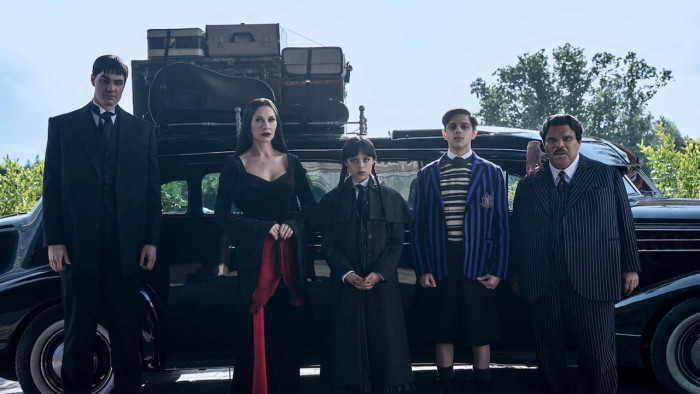20 years on: How the ‘Seinfeld’ finale paved the way for modern comedy
Afterwards, it became possible for shows like 'It’s Always Sunny in Philadelphia' to exist: shows in which people are relentlessly cruel and selfish.


Before Seinfeld, “the show about nothing”, first aired in 1989, there pretty much was nothing. The landscape of comedy was very different; Seinfeld shook up the pace, tone, and structure of the sitcom template. Previously sitcoms, like The Cosby Show and Roseanne, were about friends and families occasionally disagreeing but learning to love one another. Seinfeld was about the mundanities of the fictionalised life of Jerry Seinfeld and his friends George, Elaine, and Kramer – every episode dealt with their conquests, their schemes, and their disagreements. Afterwards, it became possible for shows like It’s Always Sunny in Philadelphia to exist: shows in which people are relentlessly cruel and selfish.
This is partly why many audiences found Seinfeld difficult to come to terms with: the human desire to see growth and change on screen was constantly assaulted by the Seinfeld characters’ refusal to treat other people with kindness. In other shows, when we are introduced to an unlikable or selfish character, like The O.C.’s Julie Cooper or Rachel from Friends, we take joy in seeing them learn and soften. From its inception Seinfeld tested the limits of what comedy would allow; creating a cruel, insular, obtuse world in which its heroes were responsible for widespread unhappiness.
Elaine trying to get out of a relationship because a man is poor
Seinfeld’s mantra was “no hugging, no learning”; a creed it stuck to. While the events of one sitcom episode don’t necessarily have to affect the rest of the series, in most, there are overarching storylines. In Friends, characters get married, their careers progress. By the time Seinfeld ended in 1998, the characters were almost exactly where they were in 1989. In the finale, which aired 20 years ago today, Jerry almost makes career progress when a show about his life is picked up by NBC. On the way to a meeting in California a private plane carrying the core four characters makes an emergency landing in Massachusetts, where they allow an armed robbery to happen, laughing at the victim. It’s a very familiar Seinfeld storyline, with a difference – they get arrested under a “Good Samaritan law” that binds citizens and visitors of the town to do good. Progress is halted, and much of the episode takes place in a courtroom; the gang are tried, and people they’ve wronged over the years testify against them. Ultimately they end up in prison.
The characters are on trial for everything that people didn’t like about Seinfeld to begin with: Jerry for his selfishness, Kramer for his carelessness, George for his immaturity. But on trial, too, is their sexuality; Elaine is judged for her use of contraceptive sponges and the fact that she exposed her nipple once. Elaine, as a feminist, loud-mouthed, judgmental, shagging mess, provided a blueprint for a character who could be just as hopeless as the men. With Julia Louis-Dreyfus’s cooperation, Elaine had dialogue and storylines that could just as easily been Jerry’s; she was abrasive, and became a model for female characters that came after. Without Elaine we wouldn’t have imperfect women characters who don’t have to hold everything together: Sunny’s selfish Sweet Dee, Broad City’s hypersexual Ilana. That made her controversial.
The most pointed reference in the Seinfeld finale is when the people testifying against the characters bring up The Contest – a competition in which all of the characters, Elaine included, try not to masturbate. It’s used against them; as a symbol of their degenerate lifestyles and personalities. This is a direct reference to the uproar that happened when the episode was aired; while they didn’t say masturbation once, they heavily alluded to it; in a landmark television episode that pushed the boundaries of comedy and decency, but that was almost never aired.
In choosing to end Seinfeld, Jerry Seinfeld was saying no to a lot of money. Everyone wanted the show to remain on the air and to keep making the massive numbers it was finally making, but Seinfeld decided that “there wasn’t much left to break down” and that he’d ran out of material as he’d gotten more famous. He wanted to “leave in love” and for the ending to be graceful – without hitting a downward slide, without being cancelled, the show could end as it had begun and lived: with Seinfeld and Larry David in charge. Media coverage in the runup speculated that Jerry and Elaine would get married; something that is skewered in the finale when she almost tells him she loves him as their plane goes down. Even after nine years, viewers still expected Seinfeld to be wholesome and neat.
The episode itself was a major moment. Larry David returned to write it, and secrecy surrounded the whole affair. They gave it a fake title to evade press attention, frustrating the media and everyone at NBC. A top advertising spot cost an obscene $1 million and it was referenced on other shows, becoming the third most viewed finale in TV history; a far cry from the early days of Seinfeld, when they were scrabbling for viewership and constantly expecting to be thrown off the air.
Despite all of that, the double bill finale was poorly received by critics; Entertainment Weekly’s Ken Tucker said that the finale was “off-key and bloated…ultimately, Seinfeld and David’s kiss-off to their fans was a loud, hearty, ‘So long, suckers!’”, while The New York Observer’s Ron Rosenbaum said that “the ludicrously humourless, pathetically strained final episode was confirmation beyond my wildest dreams of just how insanely overrated this show has always been”.
Jerry kissing a woman in front of her boyfriend, who is in a coma
While some did like it, even its stars and creators have expressed regrets about the episode; in the seventh season finale of Curb Your Enthusiasm, Seinfeld says to David “we already screwed up one finale”. In an episode of The Late Show With David Letterman, Julia Louis-Dreyfus jokingly thanked Letterman for letting her take part in “another hugely disappointing series finale”.
And it’s fair to say that the episode is not without problems – its format makes it a little slower than a standard Seinfeld episode, the courtroom setup makes it feel samey, the carousel of old characters and references makes it feel smug. But that is precisely why it’s perfect: Seinfeld has always been smug, snidey, all-knowing. Its characters and creators have always prided themselves on knowing things that we don’t – whether that’s obscure references or just how to make good comedy. Seinfeld has always gone against the grain of what’s intuitive or expected, and that’s what has aided its longevity.
Regardless of its poor reviews, the finale, like the series, has gone down in history as a blueprint for how comedy can be done. In a direct way, the courtroom setup has been recycled by a number of shows. The final episode of The IT Crowd, “Reynholm VS Reynholm”, takes place during Douglas’s divorce trial at which the characters testify. While it isn’t exactly the same, the testimonies against Douglas’s character and the format of the episode were made possible by the Seinfeld finale.
Similarly, It’s Always Sunny in Philadelphia, which shares so much with Seinfeld already in its characters’ morality and development, has borrowed from the finale several times. One episode, “The World Series Defense”, sees the characters dig themselves into more trouble when trying to fight punishment for unpaid parking tickets. In “McPoyle vs. Ponderosa: The Trial of the Century”, the gang attend a trial in which Liam McPoyle sues Bill Ponderosa for a lost eye.
NBC executive says that Jerry “needs time to grow” – a reference to how long it took for audiences to come around to Seinfeld. When George and Jerry celebrate the show being picked up, they literally struggle to hug one another. But while the episode, another exercise in stasis, manages to squeeze in everything Seinfeld has ever done, referencing itself and its own episodes throughout, it does directly oppose its own playbook. In mythologising itself, the finale is about something. The characters don’t hug or learn but they do get punished. It feels like a parody of the show itself and defies the entire point of Seinfeld: that we are watching four selfish, careless people do absolutely nothing.
But, it is still everything Seinfeld was best at: pushing the boundaries of comedy, changing the landscape of sitcoms forever. The only more fitting finale would be a non-finale, which Jason Alexander had suggested – a normal episode that left viewers feeling dissatisfied and cheated. Regardless, Seinfeld expanded the scope of what was possible within a 20-minute sitcom; it was ridiculous and ambitious, and the finale is a nod to everyone who underestimated them.
(Image: NBC)
Latest
Related Reviews and Shortlists









